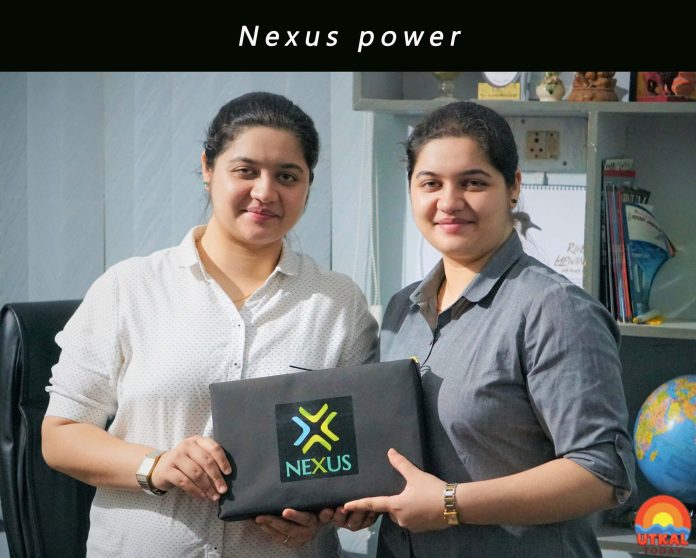
The Twins, NIKITA And NISHITA, creating a sustainable revolution in the EV sector with NEXUS POWER
Date:

Share post:
Nikita and Nishita Baliarsingh from Odisha, launched Nexus Power, in 2019, manufacturing electrical vehicles by replacing lithium batteries with bio-degradable batteries from crop residue. They aim to create an eco-friendly revolution with a 40% cost cut through this technology. EV (electrical vehicles ) the roaring future of the automobiles industry, is currently exploring newer ways to sustainability.
Back in 2017, EV was an upcoming trend, but consumers were reluctant yet to opt them over ICE-based cars. Over a late-night conversation, on the terrace, the dynamic twins, Nikita and Nishita Baliarsingh, (23years), struck a brilliant idea and the seeds of Nexus power were planted in their innovative minds. While discussing and analyzing the pros and cons of electrical vehicles, they realized the need to address the ine?ciency and life of lithium-ion batteries. With some research and digging into the subject and with the help of an old biochemistry book of their grandfather, they got a breakthrough to innovative technology. There was a statement that said “proteins may have potential bene?ts in electrolytes” and that was the turning point.
Also though EV is effectively pollution less, but the mining and sourcing of lithium, used in the batteries, cause great damage to the environment. “The EV industry lacks efficient batteries as most take about four to six hours to charge… hence, only a strong charging infrastructure would quicken the adaptation,” says Nishita Baliar singh, co-founder and CEO of Nexus Power.

Nexus power batteries are biodegradable and support two-way sustainability. The crop residue used in making the batteries is actually an agricultural waste, which when burned during reaping festivals creates a lot of environmental toxicity. The company buys this residue from the farmers, providing an extra income to them along with saving the environment from harmful smog. The cost-effective battery’s current charge time from 0-100 is 50 minutes, which the team aims to bring down to 25-30 minutes.
This innovative technology, brings together a multifaceted sustainability drive, promoting a circular economy as well.
#1 The batteries are completely lithium-ion free, thus ecofriendly
#2The supply of primary raw materials (crop residue) are in abundance, so production friendly
#3 The raw material is cheap which subsequently makes the price of the end product much cheaper than its counterparts, hence affordable
#4 Upcycling is a key to a circular economy and with every 100. battery, the farmer raises an additional 25000 rupees.
Nexus Power aims to help eradicate 7 billion tonnes of carbon emission by the next century. The amazing sustainable chain doesn’t stop there, the company also aims at placing back the by-products ethanol and biogas, in the market to facilitate a more efficient agricultural yield. They have done intensive research and finally created a technology that is like a full circle towards sustainability and no element is exploited.

At the moment, the company’s core product focuses on eco friendly, batteries for 2wheelersand 3 wheelers in the EV sector. Though Nexus sees a huge potential in other consumer electronic products and solar storage, but they keep it on their future agenda list.
Nexus Power, the Bhubaneswar-based company is mostly bootstrapped and targets sales by 2022. The sisters received a grant of ?4 lakh from the government of India under its TIDE programme. A successful test pack made to power a two-wheeler, shows a significant difference, in charging time, energy density and driving range.
The market seems quite promising. The twins are in talks with many EV manufacturers as partnering for battery supply and also exploring packaging and other finishing requirements. The sister’s dream of a greener planet and with nexus power, they aim to bring in a sustainable outlook in the E-mobility industry.
